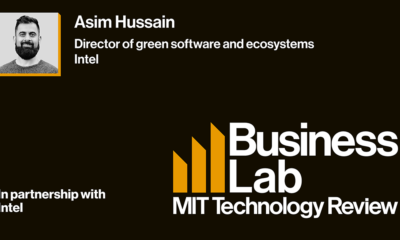Politics
Offshore Software Development Do’s and Don’ts in 2023
Published
1 year agoon
By
Drew Simpson
The most important thing in working with an offshore software development partner is to keep in mind that you are collaborating. It’s a partnership not a hierarchy of managers and employees.
A lot of business owners fail to understand this just because they pay and the offshore company does the work. However, they forget that the choice comes from both sides.
If you choose an outsourcing company, you should also wait for them to choose you, if they are a quality one, of course.
Let’s have a look at some important points following which your offshore software development partnership will be a success.
The Do’s in Offshore Software Development Partnerships
1. Clearly state your goals and requirements
First things first, you got to have clearly defined business and project goals, and a detailed list of product specifications and requirements.
If you don’t have enough experience and tech knowledge to make a product requirement list, it’s alright. Not all business owners need to be tech-savvy. Knowing your business goals and the industry your future product belongs to should suffice in the first stages.
It’s natural for business owners to come up with a great idea for their business but find themselves at a loss when trying to get it off the ground. This is where a trustworthy and experienced offshore software development partner should kick in and guide you in the right direction.
2. Research well
The tech market is huge these days and it is growing at an incredibly fast pace on a daily basis. There are a large number of software development companies and a wide variety of software development technologies available out there. When trying to find the right software partner among so many, you might find yourself a little overwhelmed from the abundance of choice. Things can get way more difficult, if you happen to be unfamiliar with the tech world.
But nothing is impossible. You just need to take the smarter steps so as not to waste too much time and effort on your journey to finding a trustworthy software development partner.
Start with research. Keep it simple. Don’t let yourself drown in the flood of information. Filter your options according to your goals and continue from there. Look up the reviews, the experience, the industry expertise – let these become your beacons to finding the right software partner.
3. Do choose an offshore software development company experienced across various industries
Software development companies that have extensive experience in working with businesses of various industries are usually more knowledgeable about how things should be done. They are more trustworthy as they have had the taste of it all and can offer you a lot – new approaches, new ideas, a different perspective on your project and efficient ways of implementing it. They know all the hidden processes and layers that can possibly arise during the development process and will be able to meet your expectations in a better way as compared to companies with less experience.
The perfect scenario would be finding an offshore software development company that has developed projects related to your industry. However, don’t make this factor dogmatically true. The main points that you need to have ticked in your future partner are:
- Experience
- Long-term partnerships
- Qualified specialists
- Positive client testimonials
As soon as you have a list of several companies that match this description, you can have quick calls with them and then go with the flow – see who matches your energy, who is genuinely interested in your project, who communicates their working ethic properly, etc.
5. Communicate and communicate some more
Communication is key. Communicating with your partner is as important at the beginning of your possible offshore software development collaboration as it is throughout the whole development process.
Choose the platform(s) that you and your partner find convenient for communication and stick with them for the rest of the project development. Have regular meetings with your development team or tech lead to ensure you are on the same page in terms of deadlines, task processing, project deliverables, and the like.
6. Learn to trust your offshore software development partner
Long-term and solid partnerships are based on trust and trust alone.
It’s okay to check in with your software team every now and then so as to be in tune with the whole process but do it within reason.
As already mentioned, offshore software development companies are not mere service providers – they are business partners. You trust your partner and don’t teach them how things should be done. A partnership is a mutually beneficial association between two or more parties which means that your software team is as interested in the success of your project as you are. So, trust them with their job and take your time to focus on what falls under your responsibilities in your business.
You cannot imagine how relieving it is to learn to trust in business — it’s a key to success and to building healthy business connections.
Note: Trusting does not mean letting the whole process loose. It means working together while respecting the freedom of the parties involved in software development. Cultivating a healthy environment results in your team reaping motivation and creativity, and in you getting a timely developed high-quality product.
Try to give just enough amount of attention to the project development process in order to make sure that whatever is being developed meets your business goals; all the while letting the tech team do the tech things.
Did this sound a little too much like a set of tips for romantic relationships? Well, it may come out that way but it equally holds true for business partnerships. Healthy environment and relationships are crucial in all our interactions – be it business or family and friends.
7. Time zone difference: Do consider that beforehand
If you have decided to partner with an offshore software development company, you should consider the time zone differences. Usually this is not a major issue but choosing the optimal version when it comes to the time zone differences might make your communication much easier.
Offshore companies nowadays bring a lot to the table: budget-friendliness, top talent, flexibility, fresh perspectives on your business projects, and much more. If you believe that your offshore software partner is the full package then the difference in time zones should not push you back.
The Don’ts in Offshore Software Development Partnerships
1. Don’t be arrogant: you are not always right
Let’s call a spade a spade. Many business owners think that they are know-it-alls and understand everything about software development. They don’t want to accept different approaches, different opinions — everything has to be the way they see it. Such an attitude can lead to multiple failed partnerships and eventually a failed project.
Don’t do this with your offshore software development team. Tell them about your idea and listen to what they think about it. They might have a thing or two to bring to the table that would make your project’s success a definite reality.
2. Don’t micromanage but don’t disappear from the process as well
Don’t breathe down the neck of your offshore software development team. Remember that talk we had above about healthy relationships? Well, micromanagement is one of the most toxic things to do in a business partnership.
Keep the balance. Be aware. Have those regular meetings. Tell them what you like and what you don’t like. If you want certain things to be developed differently, speak out. But give the software team the time and space that they need to do their job.
3. Don’t forget data security
Security is of utmost importance. If you have all the security measures and standards in place for your business, you also need to make sure that the same holds true for your tech partner. Taking the right security measures must be a priority for everyone involved in the software project development process – when we say everyone, we mean it – each and every employee at your company and at your offshore partner’s team must be security literate.
High security will basically save your business from a lot of headaches, such as:
- Financial loss
- Reputational harm
- Consumer trust loss (especially if consumer data is leaked because of a cyber attack)
- Brand erosion
We cannot stress enough how important it is to protect your data on all of your business channels, especially now that the number of cyber attacks has skyrocketed. Don’t save on data security measures.
4. Don’t go after the cheapest offshore software development partner
You may be on a tight budget and it’s quite understandable, especially in our turbulent times. However, don’t automatically choose the cheapest option you get a hold of. Cheap does not mean high quality, even and especially in the case of offshore software development teams. As a matter of fact, the cheapest option may end up costing you more than you expect.
Why? The answer is simple – because you will end up with a low-quality product in the best-case scenario, and a failed product in the worst-case scenario. In both cases, you will have to go to another software partner to have your product recovered or written from scratch.
Does this sound like something you want to go through?
5. Don’t cling to the plan
The tech world and its major software development companies have long gone agile now. It’s good to have a detailed and clearly cut project plan but clinging to it even when a different approach turns out to be more effective halfway through the project, is not the best idea.
Be more open and let the project unfold as it is being developed. You may find that slight deviations from the initial plan are actually perfecting and refining your project in unexpected ways.
6. Don’t deny the cultural differences
Speaking about offshore software development teams, you should also consider the cultural differences that you may have. These can be especially vivid if your offshore team is, say, from the Easternmost sides of the world, while you are a Europe- or US-based company. If you are not open to handling situations where you might have misunderstandings because of cultural differences, it’s better to choose a team that is closer to you in mentality.
Eastern Europe might be the golden middle for you. However, you can find great partners in all parts of the world and the cultural differences can actually be a huge benefit to your business and project as they may challenge your accepted business strategies and give you new ideas. Who knows?
As for the language differences, worry not. Most people working in the IT sector speak quite good English regardless of their geographical position and cultural background. Not to mention the fact that a lot of offshore software development companies provide English classes to their employees since English happens to be the language of modern technology.
There are also software companies that can provide you with teams who speak other European languages as well, e.g., German, French, etc., in case you find it hard to communicate in English.
Parting thoughts
An offshore collaboration will help your business grow and boost your bottom line – make sure to get the most of its potential benefits and advantages. Remember that the most important thing is finding a trustworthy and experienced tech partner who genuinely cares about your project and its success. The rest will work out as you go along.
Featured Image Credit: Mikael Blomkvist; Pexels; Thank you!
Sona Dabaghyan
I’m Sona Dabaghyan, content writer at VOLO, a software development company based in Armenia.
You may like
-


Developing climate solutions with green software
-


Microsoft ventures into AI chip development, reducing reliance on Nvidia
-


Why embracing complexity is the real challenge in software today
-


AI Agents: Adapting to the Future of Software Development
-


Rapid Application Development and the Rise of No-Code Heroes
-


Involvement of Business Users in Software Development
Politics
Fintech Kennek raises $12.5M seed round to digitize lending
Published
6 months agoon
10/11/2023By
Drew Simpson
London-based fintech startup Kennek has raised $12.5 million in seed funding to expand its lending operating system.
According to an Oct. 10 tech.eu report, the round was led by HV Capital and included participation from Dutch Founders Fund, AlbionVC, FFVC, Plug & Play Ventures, and Syndicate One. Kennek offers software-as-a-service tools to help non-bank lenders streamline their operations using open banking, open finance, and payments.
The platform aims to automate time-consuming manual tasks and consolidate fragmented data to simplify lending. Xavier De Pauw, founder of Kennek said:
“Until kennek, lenders had to devote countless hours to menial operational tasks and deal with jumbled and hard-coded data – which makes every other part of lending a headache. As former lenders ourselves, we lived and breathed these frustrations, and built kennek to make them a thing of the past.”
The company said the latest funding round was oversubscribed and closed quickly despite the challenging fundraising environment. The new capital will be used to expand Kennek’s engineering team and strengthen its market position in the UK while exploring expansion into other European markets. Barbod Namini, Partner at lead investor HV Capital, commented on the investment:
“Kennek has developed an ambitious and genuinely unique proposition which we think can be the foundation of the entire alternative lending space. […] It is a complicated market and a solution that brings together all information and stakeholders onto a single platform is highly compelling for both lenders & the ecosystem as a whole.”
The fintech lending space has grown rapidly in recent years, but many lenders still rely on legacy systems and manual processes that limit efficiency and scalability. Kennek aims to leverage open banking and data integration to provide lenders with a more streamlined, automated lending experience.
The seed funding will allow the London-based startup to continue developing its platform and expanding its team to meet demand from non-bank lenders looking to digitize operations. Kennek’s focus on the UK and Europe also comes amid rising adoption of open banking and open finance in the regions.
Featured Image Credit: Photo from Kennek.io; Thank you!
Radek Zielinski
Radek Zielinski is an experienced technology and financial journalist with a passion for cybersecurity and futurology.
Politics
Fortune 500’s race for generative AI breakthroughs
Published
6 months agoon
10/11/2023By
Drew Simpson
As excitement around generative AI grows, Fortune 500 companies, including Goldman Sachs, are carefully examining the possible applications of this technology. A recent survey of U.S. executives indicated that 60% believe generative AI will substantially impact their businesses in the long term. However, they anticipate a one to two-year timeframe before implementing their initial solutions. This optimism stems from the potential of generative AI to revolutionize various aspects of businesses, from enhancing customer experiences to optimizing internal processes. In the short term, companies will likely focus on pilot projects and experimentation, gradually integrating generative AI into their operations as they witness its positive influence on efficiency and profitability.
Goldman Sachs’ Cautious Approach to Implementing Generative AI
In a recent interview, Goldman Sachs CIO Marco Argenti revealed that the firm has not yet implemented any generative AI use cases. Instead, the company focuses on experimentation and setting high standards before adopting the technology. Argenti recognized the desire for outcomes in areas like developer and operational efficiency but emphasized ensuring precision before putting experimental AI use cases into production.
According to Argenti, striking the right balance between driving innovation and maintaining accuracy is crucial for successfully integrating generative AI within the firm. Goldman Sachs intends to continue exploring this emerging technology’s potential benefits and applications while diligently assessing risks to ensure it meets the company’s stringent quality standards.
One possible application for Goldman Sachs is in software development, where the company has observed a 20-40% productivity increase during its trials. The goal is for 1,000 developers to utilize generative AI tools by year’s end. However, Argenti emphasized that a well-defined expectation of return on investment is necessary before fully integrating generative AI into production.
To achieve this, the company plans to implement a systematic and strategic approach to adopting generative AI, ensuring that it complements and enhances the skills of its developers. Additionally, Goldman Sachs intends to evaluate the long-term impact of generative AI on their software development processes and the overall quality of the applications being developed.
Goldman Sachs’ approach to AI implementation goes beyond merely executing models. The firm has created a platform encompassing technical, legal, and compliance assessments to filter out improper content and keep track of all interactions. This comprehensive system ensures seamless integration of artificial intelligence in operations while adhering to regulatory standards and maintaining client confidentiality. Moreover, the platform continuously improves and adapts its algorithms, allowing Goldman Sachs to stay at the forefront of technology and offer its clients the most efficient and secure services.
Featured Image Credit: Photo by Google DeepMind; Pexels; Thank you!
Deanna Ritchie
Managing Editor at ReadWrite
Deanna is the Managing Editor at ReadWrite. Previously she worked as the Editor in Chief for Startup Grind and has over 20+ years of experience in content management and content development.
Politics
UK seizes web3 opportunity simplifying crypto regulations
Published
6 months agoon
10/10/2023By
Drew Simpson
As Web3 companies increasingly consider leaving the United States due to regulatory ambiguity, the United Kingdom must simplify its cryptocurrency regulations to attract these businesses. The conservative think tank Policy Exchange recently released a report detailing ten suggestions for improving Web3 regulation in the country. Among the recommendations are reducing liability for token holders in decentralized autonomous organizations (DAOs) and encouraging the Financial Conduct Authority (FCA) to adopt alternative Know Your Customer (KYC) methodologies, such as digital identities and blockchain analytics tools. These suggestions aim to position the UK as a hub for Web3 innovation and attract blockchain-based businesses looking for a more conducive regulatory environment.
Streamlining Cryptocurrency Regulations for Innovation
To make it easier for emerging Web3 companies to navigate existing legal frameworks and contribute to the UK’s digital economy growth, the government must streamline cryptocurrency regulations and adopt forward-looking approaches. By making the regulatory landscape clear and straightforward, the UK can create an environment that fosters innovation, growth, and competitiveness in the global fintech industry.
The Policy Exchange report also recommends not weakening self-hosted wallets or treating proof-of-stake (PoS) services as financial services. This approach aims to protect the fundamental principles of decentralization and user autonomy while strongly emphasizing security and regulatory compliance. By doing so, the UK can nurture an environment that encourages innovation and the continued growth of blockchain technology.
Despite recent strict measures by UK authorities, such as His Majesty’s Treasury and the FCA, toward the digital assets sector, the proposed changes in the Policy Exchange report strive to make the UK a more attractive location for Web3 enterprises. By adopting these suggestions, the UK can demonstrate its commitment to fostering innovation in the rapidly evolving blockchain and cryptocurrency industries while ensuring a robust and transparent regulatory environment.
The ongoing uncertainty surrounding cryptocurrency regulations in various countries has prompted Web3 companies to explore alternative jurisdictions with more precise legal frameworks. As the United States grapples with regulatory ambiguity, the United Kingdom can position itself as a hub for Web3 innovation by simplifying and streamlining its cryptocurrency regulations.
Featured Image Credit: Photo by Jonathan Borba; Pexels; Thank you!
Deanna Ritchie
Managing Editor at ReadWrite
Deanna is the Managing Editor at ReadWrite. Previously she worked as the Editor in Chief for Startup Grind and has over 20+ years of experience in content management and content development.
